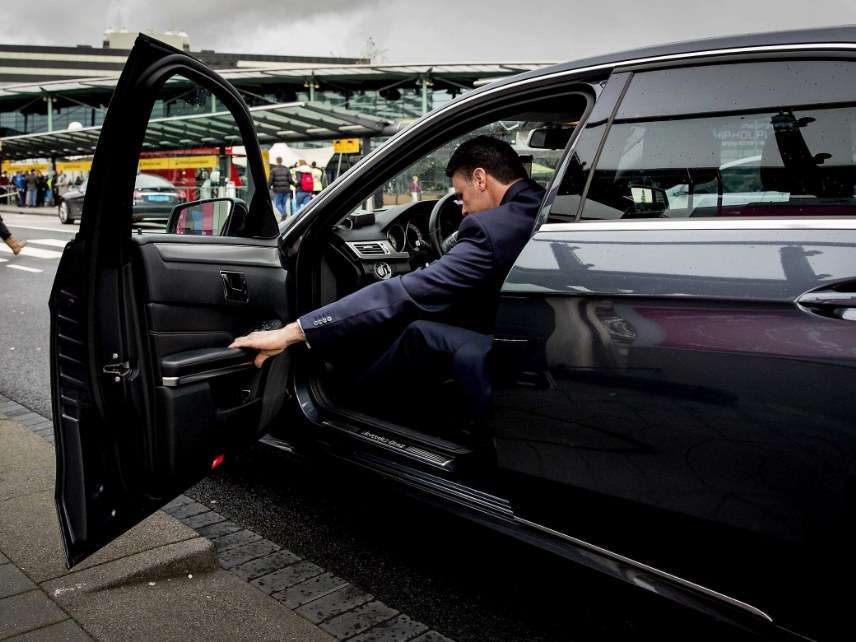An Uber Driver Is Fined for Not Speaking English, but Tech Innovation Provides Smarter Solutions
Why should local governments demand a default language when we have the tools to sort it all out?

County and municipal government agencies in the Miami area have fined several dozen for-hire drivers for violating a regulation requiring them to be able to speak English.
One of the people penalized, a Spanish-speaking Uber driver named Carmen Hechevarria, has gone to the press to talk about her treatment and her $250 fine. The incident highlights how poorly government regulations have adapted to both cultural change and technological advances.
Licensing regulations in Miami-Dade County require that cabbies and other for-hire drivers "be able to communicate in the English language." According to the Miami Herald, Hechevarria was not fined because her lack of English skills caused problems for any customers. A Miami airport traffic officer greeted her in English when she was dropping off her passengers, and she didn't respond. This apparently was enough to trigger the officer's concerns, and after questioning her with the help of another officer who spoke Spanish, they determined that she was not able to speak English. Therefore, they concluded, she was operating in violation of the regulation.
After the case started getting publicity, the county's Department of Transportation put out a statement explaining that the purpose of the regulation is to make sure that the driver can communicate with the passenger in an emergency or to receive basic directions. (This, oddly, assumes that the passenger is going to be an English speaker.) A representative from Uber says that the company doesn't require drivers to be able speak English. Its app operates in English to arrange trips, and Uber believe that complies with the law.
Just think of the many ways technology could bypass this "problem" without fining Hechevarria or, worse, telling her she's not allowed to drive. Uber has already added tools to its app that make it easier for deaf and hard-of-hearing people to be drivers. When using an app to order a car, couldn't passengers inform the service whether they need somebody who speaks English? Even better: What if the customer needs somebody who speaks a different language entirely? We're talking about Miami here. Hechevarria could probably confine herself to driving around people who exclusively speak Spanish and never go hungry. UberX does allow customers to request Spanish-speaking drivers in six cities (Miami, surprisingly, is not yet among them). Imagine a tool like that expanded to other languages and other cities—and countries.
Innovations like those can help fix problems in ways that work for everyone. That's a nice contrast with occupational regulations, which instead block people from getting jobs and contributing to the economy.


Show Comments (42)